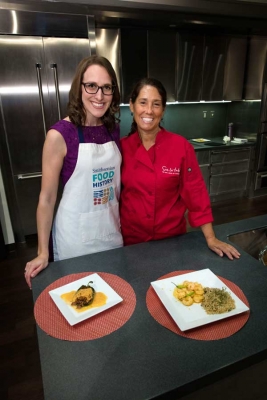What is the career in Food historian?

An array of dishes greets us at a buffet. But the one dish that entices is the aromatic biryani. Do you know that this delicacy, made up of multiple layers of fragrant rice and meat or vegetables, originated in Iran and travelled down to Asia through traders and people of noble descent? Or that idli, the incontestably South Indian food, may have originated in Indonesia? Knowing the history of food – it’s journey from distant lands and times to our plates today, can take the dining experience to a whole new dimension.
Food is key to understanding history and geography, spiritually, gender politics and labour relations of any region. And with the growing demand for food tourism, chronicles of foods are equally in vogue. So if you have an appetite for both food and its lore, food history can be a gratifying field.
Scope
Food historians possess the power to popularize ancient food cultures and inspire contemporary chefs. With its variety, flavours and spices, Indian food has gained international renown. The two millennia and more of Indian culinary philosophy makes for interesting stories that can add to the palate. So sagacious custodians of food history, such as K.T. Achaya, Pushpesh Pant and J. Inder Singh “Jiggs” Kalra are greatly revered in the food industry.
Besides writing books on food history, food historians also contribute columns and blogs to newspapers. Five-star hotels often bring them on board as consultants while preparing a new menu or exploring new cuisines. Food historians could even get a chance to host their own travel shows. A food connoisseur and cataloguer can lead a charming life indeed!
How it works?
The interest in food history is relatively new in India. For long time the only significant food historian India had was the late historian K.T. Achaya. Now there are many more food historians because more and more people are curious about ancient food traditions.
Food historians document the evolution of food. They trace the traditions and techniques that are part of the culinary heritage. Whether it is the creamy butter chicken or the evolution of the unique Indian-Chinese, food historians combine their passions for food, history and writing.
Required skills:
- A love for food and history is, needless to say, a must.
- Communication skills and writing skills are equally important.
- You need to be able to keep yourself updated on the latest food trends.
- Observational skills.
- Ability to make incisive commentary.
What to study?
To become a food historian, you need to be well-versed with history and culture. So an undergraduate and postgraduate course in History is recommended. Food history is covered as a module in history programmes in Indian universities. Many universities offer a unique course known as Food Anthropology which explores food, culture and identity. Such as course will help you build an expertise in food production and history. Some universities have a Bachelors or a Masters in Food Studies, which provides cultural, historical, and sociological aspects of food.
Where:
India:
- St. Xavier’s College, Mumbai: M.A. in Ancient Indian History, Culture and Archaeology.
- Ashoka University, Haryana: B.A. Hons. History
Abroad:
- School of African and Oriental Studies, University of London, the U.K.: Masters in Food Anthropology.
- College of Social Sciences, University of Exeter, the U.K.: M.A. in Food Studies
- Indiana University Bloomington, the U.S.: B.A. in Anthropology of Food
- Brown University, the U.S.: Offers undergraduate and postgraduate courses in Food Studies.
Picture Credit : Google